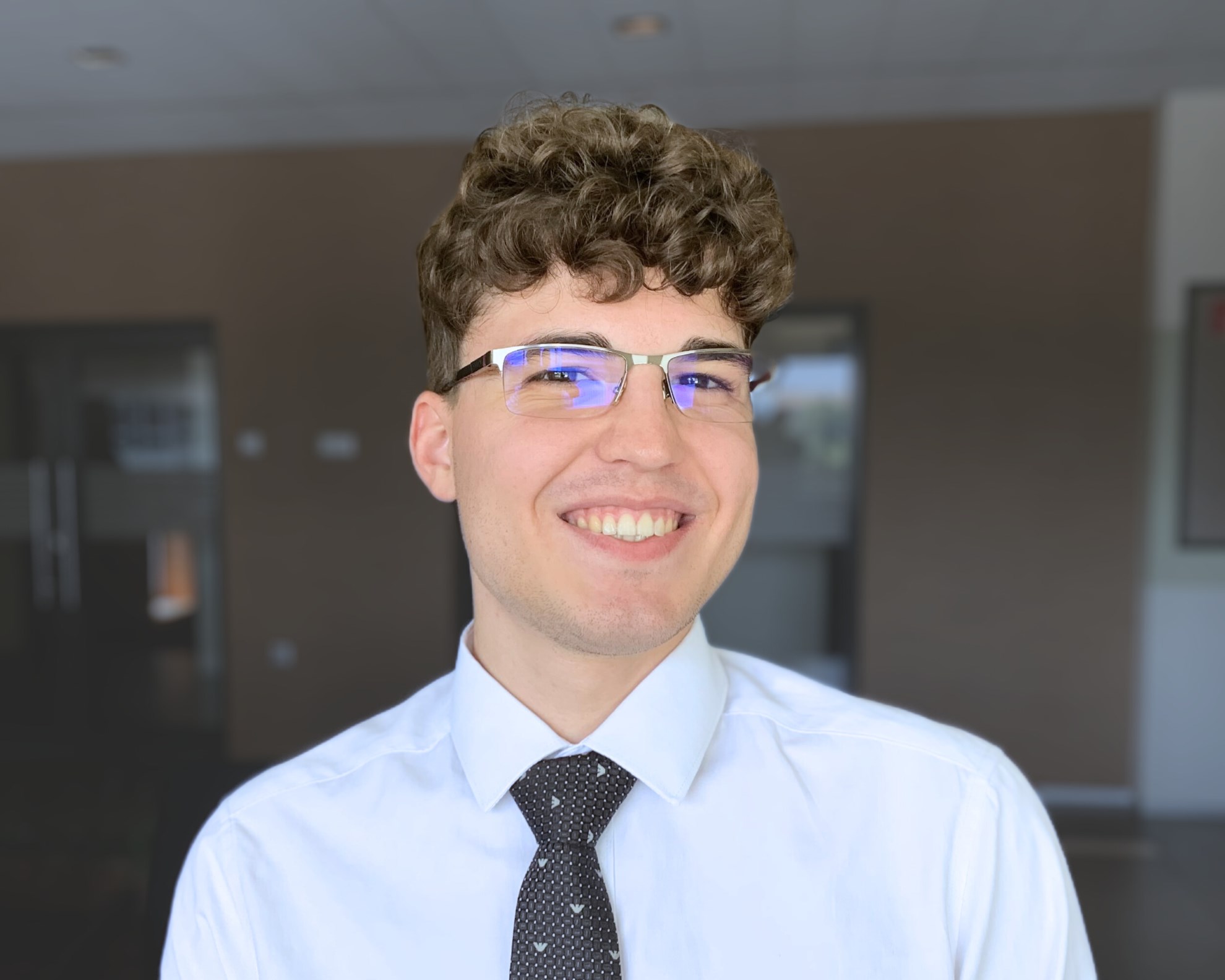A Glimpse into the Future: Interview with Attila Faragó, a Recent Master in Autonomous Vehicle Control
Attila Faragó, a recent graduate with a master’s degree in autonomous vehicle control engineering, has had an extraordinary journey over the past few years. Starting from Kecskemét, he pursued his master’s degree at the Budapest University of Technology and Economics (BME) and gained experience in Germany through an Erasmus scholarship. In this interview, conducted during a break in his final exams, Attila talks about his education, the advantages and challenges of dual education, and his future plans. He discusses the importance of research and development, his experiences in the industry, and his views on the current job market. Through the eyes of a young engineer, we get an insight into the exciting and challenging world of the automotive industry.
Now that you have completed this process, how do you look back on the past few years? Was it a good decision to choose this course?
Attila Faragó: Yes, I did my undergraduate studies in Kecskemét, but I thought it was important to do my master’s at BME. I chose the MSc program in autonomous vehicle control engineering because I was attracted to research and development and wanted to gain deeper knowledge. I don’t regret it; in fact, I also went on an Erasmus exchange to Braunschweig, Germany. The training portfolio there is also very broad, but this MSc program in autonomous vehicle control is unique.
How did your experience compare to your expectations?
Attila Faragó: The MSc program is much more collegial and focuses on the value of acquired knowledge. You can find the area that interests you and delve deeply into it, partly independently and partly through collaborative work at the department. This relationship was very constructive, and my dual education at Knorr-Bremse provided a wide range of knowledge.
Do you feel that the relationship between students and instructors is more supportive?
Attila Faragó: Yes, many courses were taught by doctoral students, which contributed to the success of joint projects. There were also project-based subjects where we could work with doctoral students, giving the education a more informal format.
What are your plans for the future?
Attila Faragó: The automotive industry is currently in a difficult situation; the company where I worked has announced a hiring freeze. My goal now is to find a full-time job, primarily in research and development. I am also interested in the quality assurance field, and in the long term, I can imagine moving abroad, especially to a German-speaking country. I have an intermediate level of German, which could be an advantage for finding a job abroad.
Do you consider moving abroad important for the experience or do you see broader opportunities there?
Attila Faragó: Both. There is a hiring freeze in Hungary, partly due to the economic situation in Germany. Getting into a German industrial or research and development company would be beneficial not only professionally but also for improving my German. This dual advancement would provide valuable experiences in the long term and open up more opportunities for me in the international job market.
Do you feel there are still things you need to learn after university education?
Attila Faragó: Many job advertisements expect specific knowledge and professional experience, which is quite unrealistic to acquire right out of university. There are few junior positions, and an MSc cannot be so specific as to delve deeply into a very specialized field. This can change with a thesis, as you can delve deeply into a specific area during a year of work.
If you do your thesis at a company, does that help build a network?
Attila Faragó: Yes, the goal of dual education is to help students easily integrate into the company after graduation. But the industry does not work like this now; there is no long-term strategy for workforce recruitment. Companies either hire a lot of people suddenly or no one, resulting in fluctuations.
It’s interesting, many company representatives say it’s important for them to connect with students early.
Attila Faragó: This is a good policy, but they do not consider it in the long term. When there is a good year, they expand; when it’s not so good, there is a hiring freeze. This does not ensure a consistent approach. Market processes regulate this, which does not favor long-term planning.
Thank you for the interview, and good luck in the future! Can we take a photo?
Attila Faragó: Of course!


